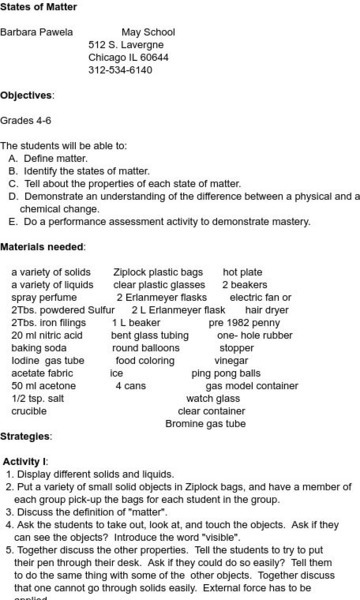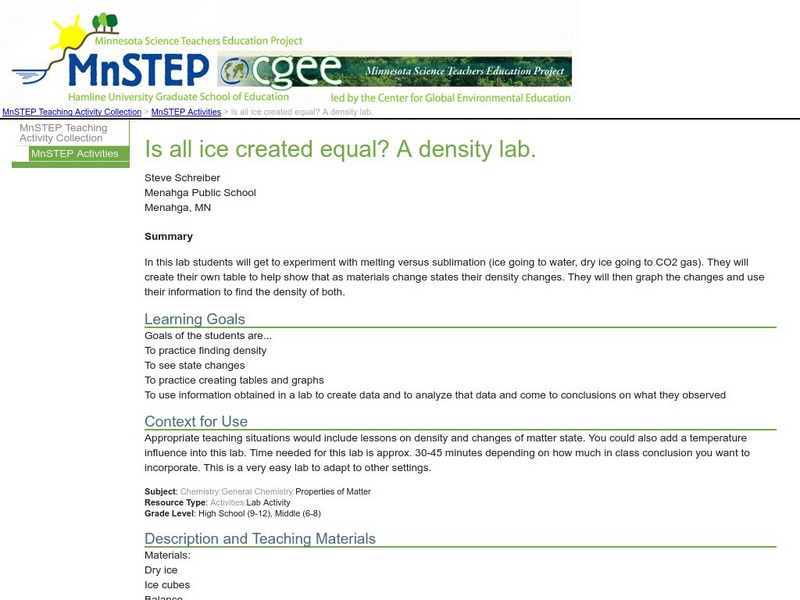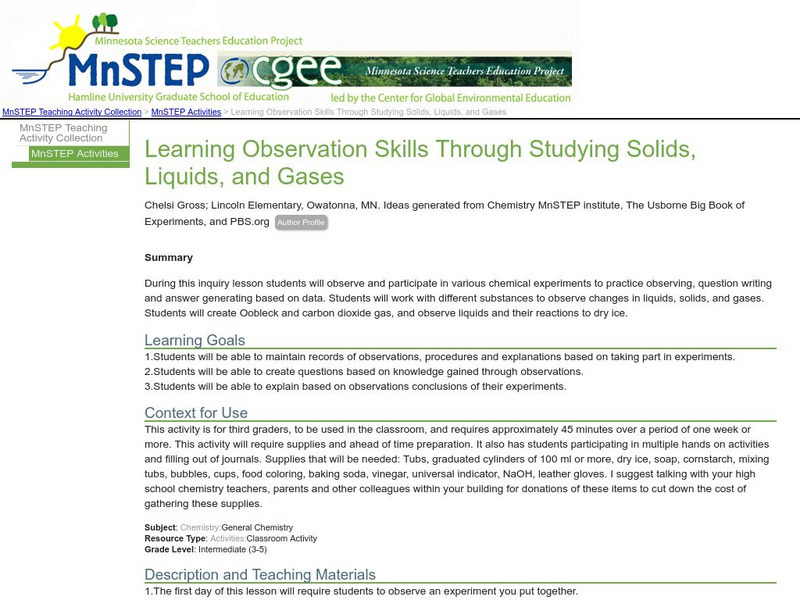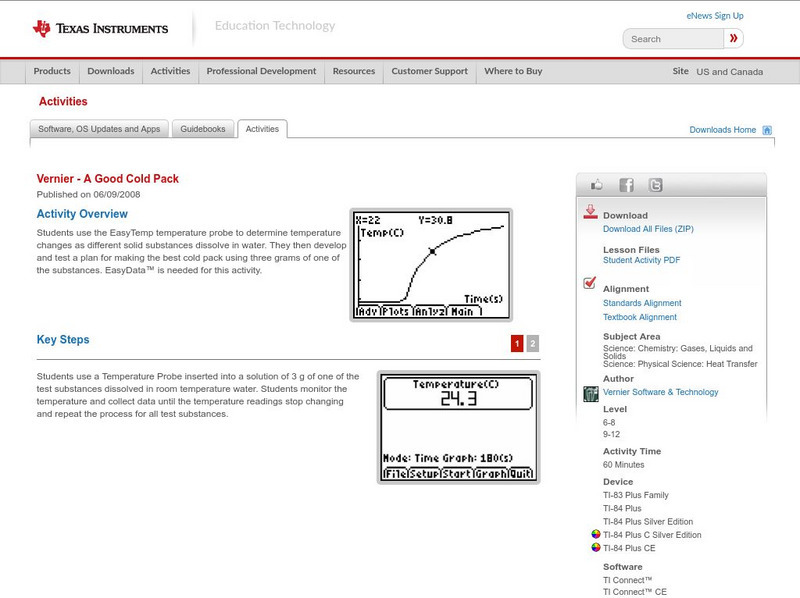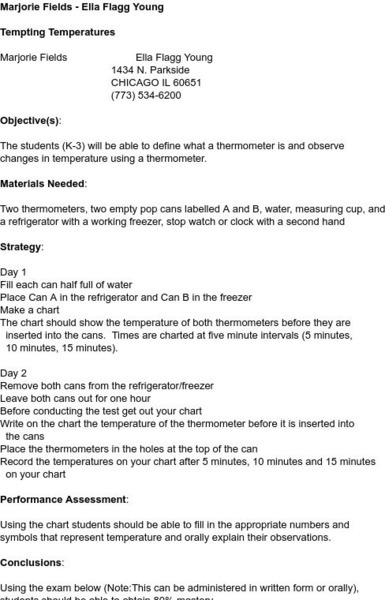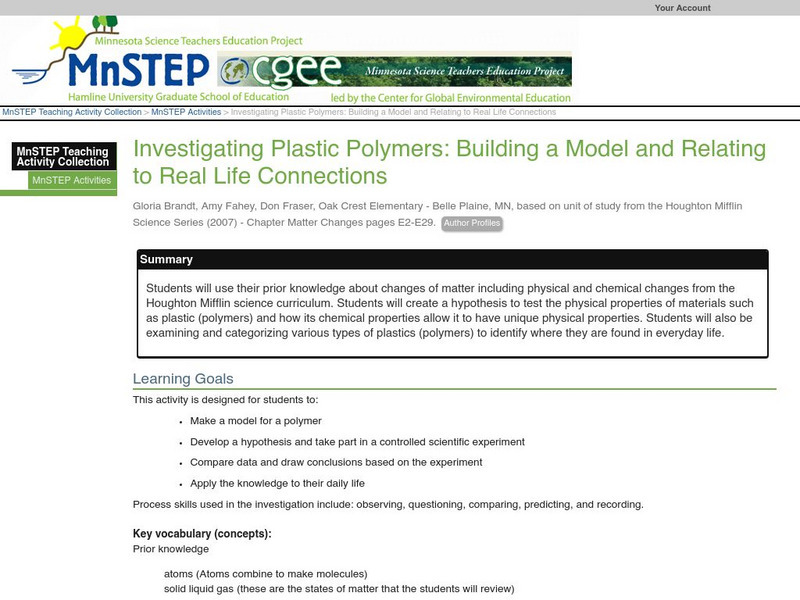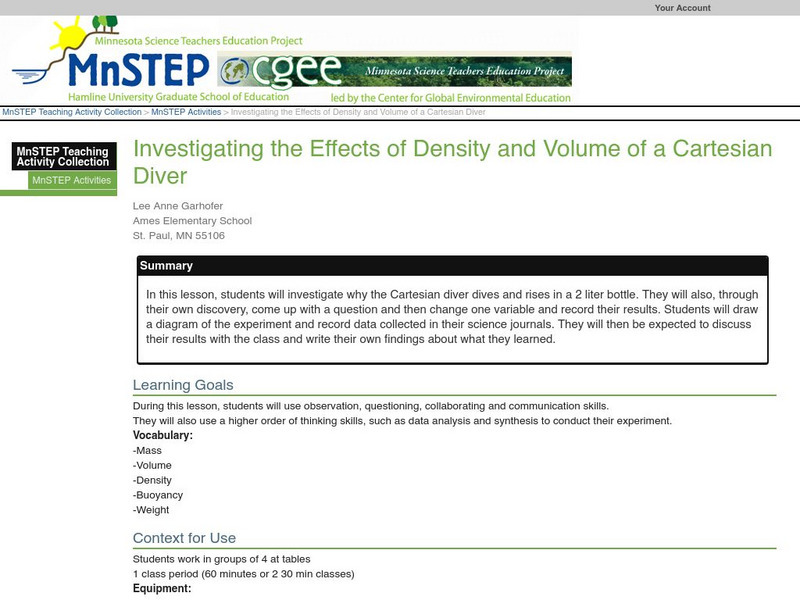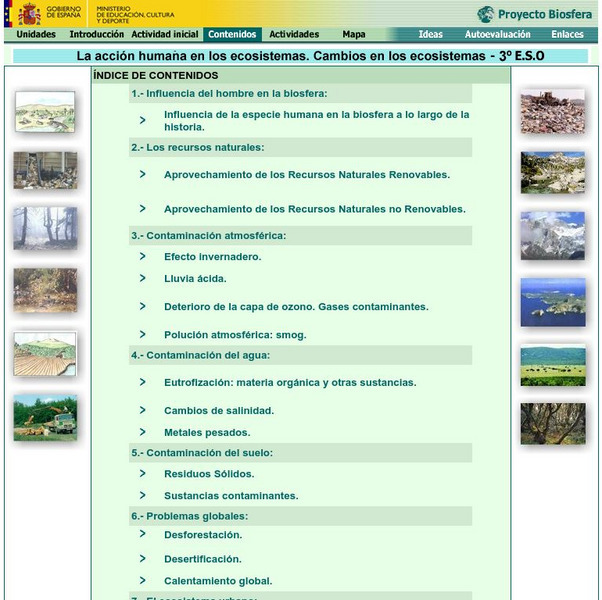Hi, what do you want to do?
Museum of Science
The Atom's Family: Phases of Matter
Help the Phantom choose a material and observe the changes at different temperatures in the molecule chamber. What happens to the elements or molecules as the temperature changes?
BBC
Bbc Schools: Changing States of Matter Quiz
Use this quiz to assess your knowledge of the states of matter. Links are provided to increase your screen size, view the quiz in a different format, review the states of matter prior to taking the quiz, and take part in a fun,learning...
Science and Mathematics Initiative for Learning Enhancement (SMILE)
Smile: States of Matter
A comprehensive lesson plan site that contains a number of activities to aid in teaching about the states and properties of matter and the difference between a physical and chemical change.
Science Education Resource Center at Carleton College
Serc: Is All Ice Created Equal? A Density Lab
A lab experiment that shows students that different molecules melt in different ways. This lab also allows students to practice calculating and finding density, mass, and volume. Lesson plan includes lab handout for students.
University Corporation for Atmospheric Research
Ucar: Just a Phase: Water as a Solid, Liquid, and Gas
This site helps students construct a model of the arrangement of water molecules when present as solid, liquid or gas. Includes background information, lesson plans, links to standards and assessment ideas.
New York University
New York University: States of Water
Use this resource to learn about the three different phases of water; solid, liquid, and gas. What happens to water as it changes into a solid or gas? Includes short and easy to do activity.
Concord Consortium
Concord Consortium: How Can a Small Spark Start a Huge Explosion?
In this Activity 1 investigates What makes materials different from each other? Students will continue to learn about energy and to investigate how energy changes relate to changes in matter. Students will also explore what makes...
Science Education Resource Center at Carleton College
Serc: Learning Observation Skills Through Studying Solids, Liquids, and Gases
During this lesson, students will practice observing, question writing, and answer generating based on taking part in experiments. Students will work with different substances to observe changes in liquids, solids, and gases.
Texas Instruments
Texas Instruments: A Good Cold Pack
Students use the EasyTemp temperature probe to determine temperature changes as different solid substances dissolve in water. They then develop and test a plan for making the best cold pack using three grams of one of the substances....
Science and Mathematics Initiative for Learning Enhancement (SMILE)
Smile: Tempting Temperatures
In this lesson plan students learn how to use a thermometer and compare changes in temperature using water in the fridge and water in the freezer. Helps students create charts to analyze data.
Science Education Resource Center at Carleton College
Serc: Investigating Plastic Polymers: Building a Model
Students will use their prior knowledge about changes of matter including physical and chemical changes from the Houghton Mifflin science curriculum. Students will create a hypothesis to test the physical properties of materials such as...
McREL International
Mc Rel: Whelmer #10 Learning Activity: Singing Rod
An easy to do activity that investigates the simple observable properties of sound waves. The activity is presented in lesson plan format that meets NSES standards.
American Chemical Society
Middle School Chemistry: Lesson Plans: What Is a Chemical Reaction?
After observing a demonstration of a chemical reaction between a burning candle and the oxygen in the air, students use atom model cut-outs to model the reaction and see that all the atoms in the reactants show up in the products.
National Institute of Educational Technologies and Teacher Training (Spain)
Ministerio De Educacion: La Dinamica De Los Ecosistemas
This unit shows how ecosystems change over time and how matter and energy, which are essential to its operation, are transformed and passed from one living thing to another forming, in some cases, authentic cycles. It contains 19...
Other
Wisconsin K 12 Energy Education Program (Keep)
The mission of KEEP is to improve energy education in Wisconsin's schools. It provides teachers access to resources, activities and web support for many hands-on lessons for all grade levels.
Science Education Resource Center at Carleton College
Serc: Investigating the Effects of Density and Volume of a Cartesian Diver
In this lesson, students will investigate why the Cartesian diver dives and rises in a 2 liter bottle. They will also, through their own discovery, come up with a question and then change one variable and record their results. Students...
Other
Science Alive: Melting Point Simulation
Percy Julian and Josef Pikl used the fact that melting point-the temperature at which a substance changes from a solid to a liquid-is a characteristic property of a substance to prove that the British chemist Robert Robinson could not...
National Institute of Educational Technologies and Teacher Training (Spain)
Ministerio De Educacion: La Accion Humana en Los Ecosistemas.
Throughout this unit, you will see how man change and affects the environment in which they live. You will have a better understanding of our need of matter and energy and the consequences of their use and abuse. It contains 19...







